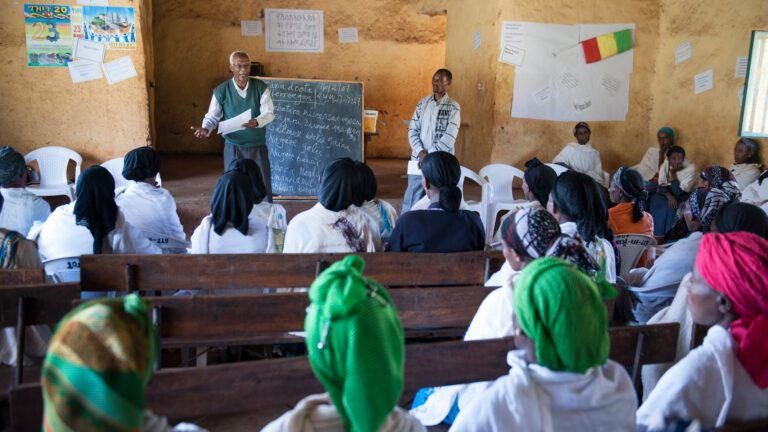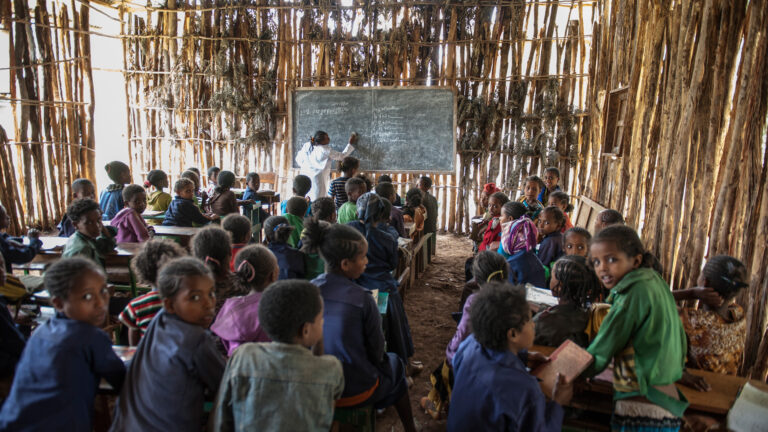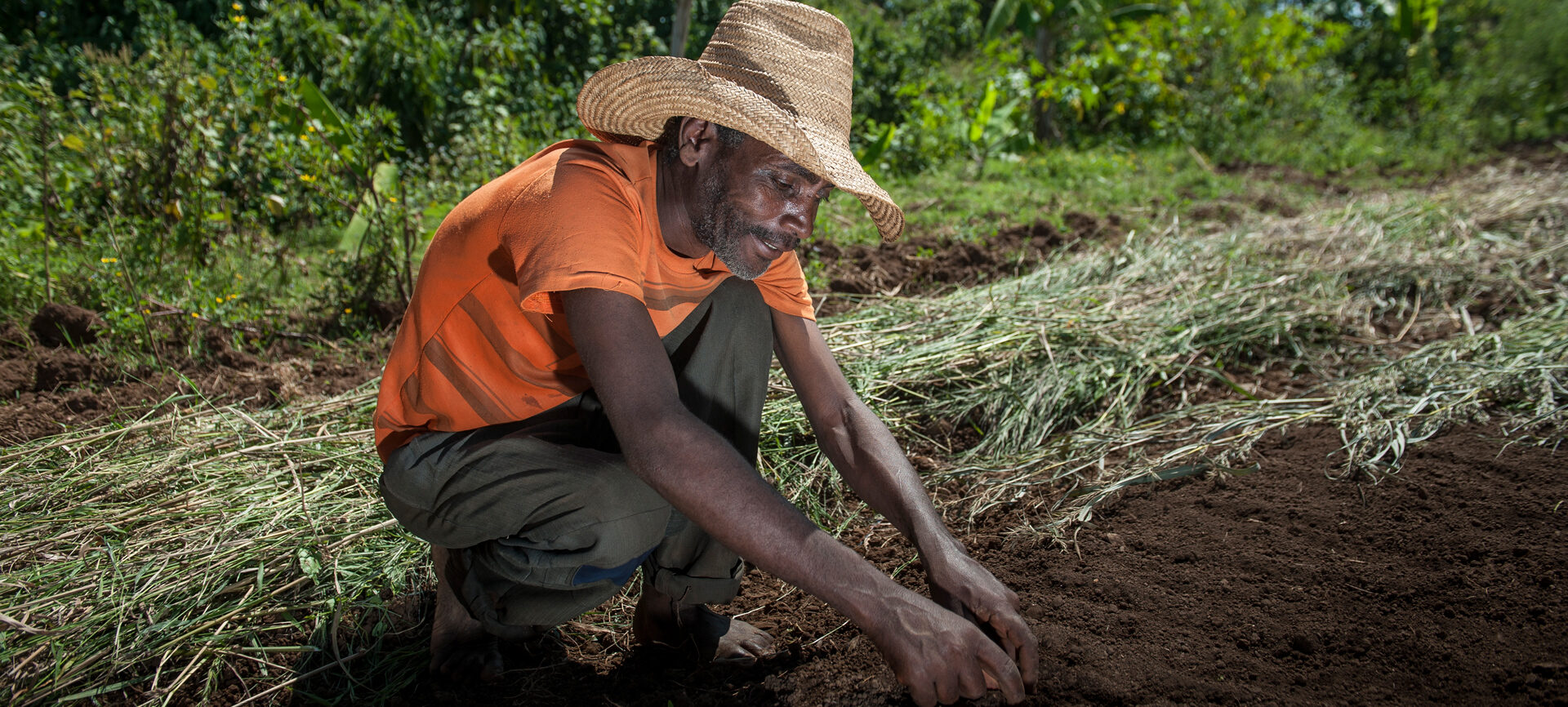
Project area Dano
General information
Dano is located 200 kilometres southwest of Addis Ababa in the West Shoa Zone in the regional state of Oromia. The 659 square kilometre area extends over a high plateau with a few hills. In the two rainy seasons – the larger one from June to September, the smaller one from mid-March to the end of April – an average of 1050 mm of rain falls each year. The 105,430 inhabitants live mainly from agriculture and livestock farming, but this is barely enough to survive. Menschen für Menschen has been running an integrated rural development project in Dano since 2013.
Project start: 2013
Area: 659 km²
Population: approx. 105,430
Location: approx. 200 kilometres west of Addis Ababa
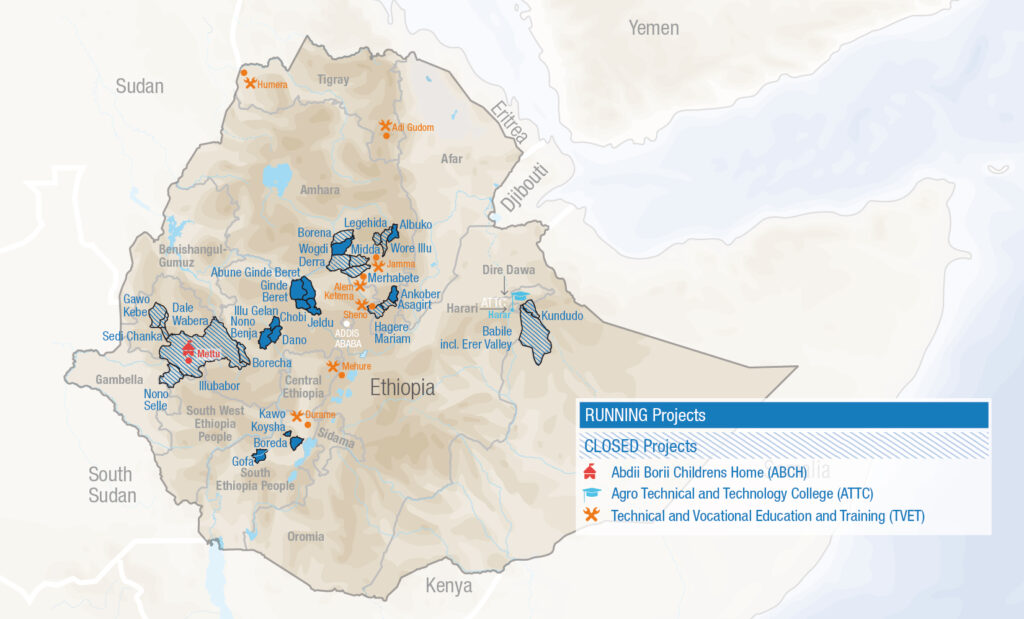
Initial situation before the start of the project
The soil in Dano has been severely eroded and depleted by deforestation and overgrazing. The farmers need wood for their households, but have no experience of reforestation. The animals graze on open land and in many places take away the last protection from the soil. The result is leaching and erosion ditches. Farmers also use outdated equipment and outdated techniques to work the fields.
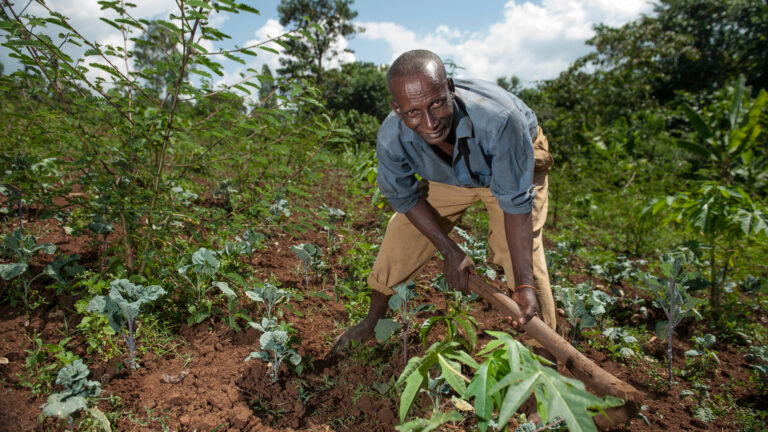
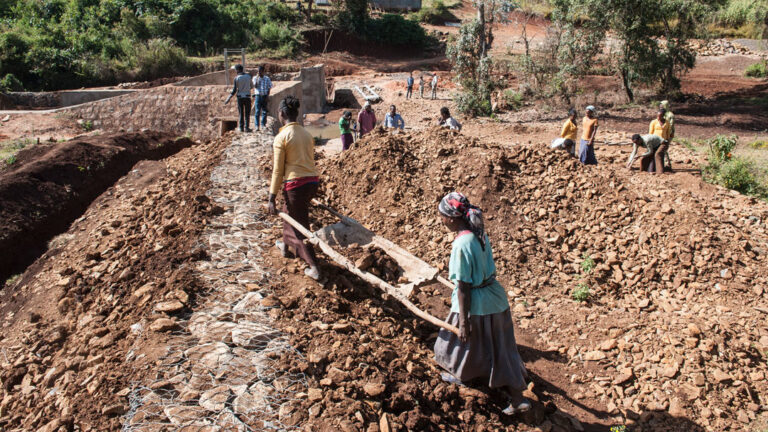
Only a small proportion of the population has access to clean drinking water, resulting in stomach and intestinal diseases. As is common in Ethiopia, women and girls are responsible for collecting wood and water, which keeps them busy for a large part of the day. The girls are therefore often unable to attend school. Most of the school buildings in the project area are made of wood and clay and are in very poor condition. There are hardly any school books.
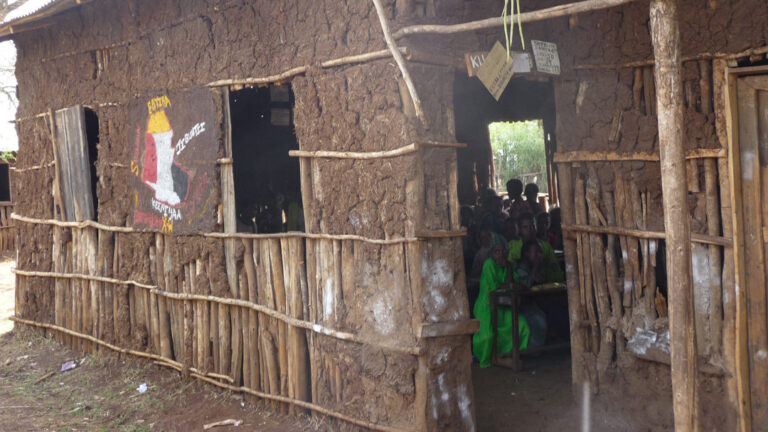
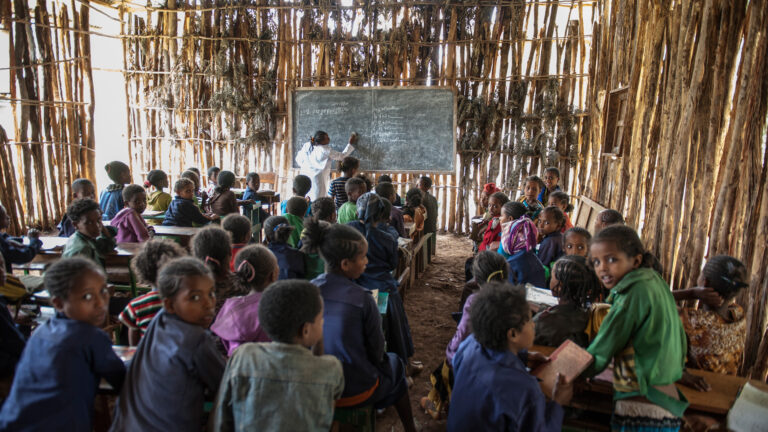
Malaria, pneumonia, skin diseases and musculoskeletal disorders are also common in Dano. However, treatment options in the existing medical facilities are limited. Women participate in economic and social life, but are traditionally disadvantaged. They bear the main burden in the household, but have little say in decisions and are unable to generate their own income due to a lack of capital.
